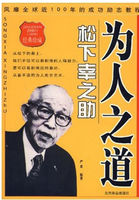This lecture is intended to set forth a memorable movement in the Roman Catholic Church,--a reformation of morals, preceding the greater movement of Luther to produce a reformation of both morals and doctrines. As the representative of this movement I take Savonarola, concerning whom much has of late been written; more, Ithink, because he was a Florentine in a remarkable age,--the age of artists and of reviving literature,--than because he was a martyr, battling with evils which no one man was capable of removing. His life was more a protest than a victory. He was an unsuccessful reformer, and yet he prepared the way for that religious revival which afterward took place in the Catholic Church itself. His spirit was not revolutionary, like that of the Saxon monk, and yet it was progressive. His soul was in active sympathy with every emancipating idea of his age. He was the incarnation of a fervid, living, active piety amid forms and formulas, a fearless exposer of all shams, an uncompromising enemy to the blended atheism and idolatry of his ungodly age. He was the contemporary of political, worldly, warlike, unscrupulous popes, disgraced by nepotism and personal vices,--men who aimed to extend not a spiritual but temporal dominion, and who scandalized the highest position in the Christian world, as attested by all reliable historians, whether Catholic or Protestant. However infallible the Catholic Church claims to be, it has never been denied that some of her highest dignitaries have been subject to grave reproaches, both in their character and their influence. Such men were Sixtus IV., Julius II., and Alexander VI.,--able, probably, for it is very seldom that the popes have not been distinguished for something, but men, nevertheless, who were a disgrace to the superb position they had succeeded in reaching.
The great feature of that age was the revival of classical learning and artistic triumphs in sculpture, painting, and architecture, blended with infidel levity and social corruptions, so that it is both interesting and hideous. It is interesting for its triumphs of genius, its dispersion of the shadows of the Middle Ages, the commencement of great enterprises and of a marked refinement of manners and tastes; it is hideous for its venalities, its murders, its debaucheries, its unblushing wickedness, and its disgraceful levities, when God and duty and self-restraint were alike ignored.
Cruel tyrants reigned in cities, and rapacious priests fattened on the credulity of the people. Think of monks itinerating to sell perverted "indulgences"; of monasteries and convents filled, not with sublime enthusiasts as in earlier times, but with gluttons and sensualists, living in concubinage and greedy of the very things which primitive monasticism denounced and abhorred! Think of boys elevated to episcopal thrones, and the sons of popes made cardinals and princes! Think of churches desecrated by spectacles which were demoralizing, and a worship of saints and images which had become idolatrous,--a degrading superstition among the people, an infidel apathy among the higher classes: not infidel speculations, for these were reserved for more enlightened times, but an indifference to what is ennobling, to all vital religion, worthy of the Sophists in the time of Socrates!
It was in this age of religious apathy and scandalous vices, yet of awakening intelligence and artistic glories, when the greatest enthusiasm was manifested for the revived literature and sculptured marbles of classic Greece and Rome, that Savonarola appeared in Florence as a reformer and preacher and statesman, near the close of the fifteenth century, when Columbus was seeking a western passage to India; when Michael Angelo was moulding the "Battle of Hercules with the Centaurs;" when Ficino was teaching the philosophy of Plato; when Alexander VI. was making princes of his natural children; when Bramante was making plans for a new St.
Peter's; when Cardinal Bembo was writing Latin essays; when Lorenzo de' Medici was the flattered patron of both scholars and artists, and the city over which he ruled with so much magnificence was the most attractive place in Europe, next to that other city on the banks of the Tiber, whose wonders and glories have never been exhausted, and will probably survive the revolutions of unknown empires.
But Savonarola was not a native of Florence. He was born in the year 1452 at Ferrara, belonged to a good family, and received an expensive education, being destined to the profession of medicine.
He was a sad, solitary, pensive, but precocious young man, whose youth was marked by an unfortunate attachment to a haughty Florentine girl. He did not cherish her memory and dedicate to her a life-labor, like Dante, but became very dejected and very pious.
His piety assumed, of course, the ascetic type, for there was scarcely any other in that age, and he entered a Dominican convent, as Luther, a few years later, entered an Augustinian. But he was not an original genius, or a bold and independent thinker like Luther, so he was not emancipated from the ideas of his age. How few men can go counter to prevailing ideas! It takes a prodigious genius, and a fearless, inquiring mind, to break away from their bondage. Abraham could renounce the idolatries which surrounded him, when called by a supernatural voice; Paul could give up the Phariseeism which reigned in the Jewish schools and synagogues, when stricken blind by the hand of God; Luther could break away from monastic rules and papal denunciation, when taught by the Bible the true ground of justification,--but Savonarola could not.















